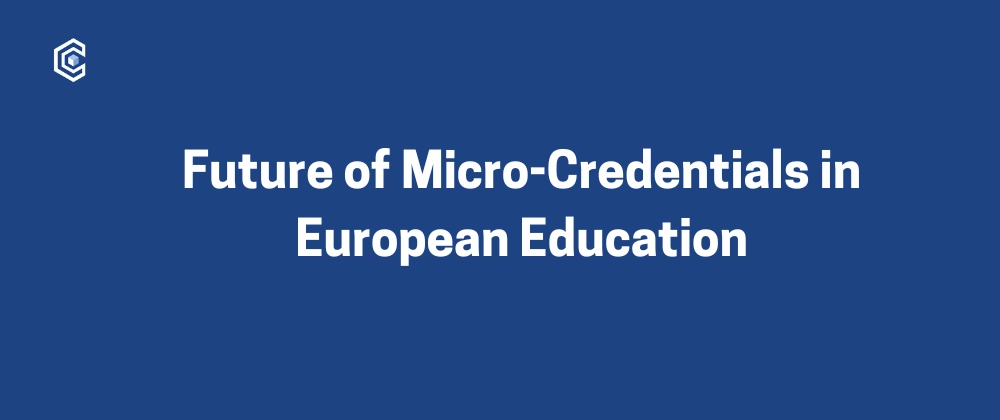Micro-credentials are poised to play a transformative role in European education, driven by policy initiatives, technological advancements, and the need for flexible, skills-based learning pathways. Below is an overview of their potential future impact:
Key Drivers of Micro-Credentials
-
Policy Support and Standardization:
- The European Union has adopted a Recommendation on micro-credentials to foster lifelong learning and employability across borders. This includes defining standards for quality, transparency, and portability to build trust in micro-credentials.
- The European Skills Agenda and Digital Education Action Plan emphasize their role in addressing skills gaps and supporting the green and digital transitions.
-
Integration with Workforce Development:
- Micro-credentials align with skills-based hiring practices, focusing on competencies rather than traditional qualifications. This approach enhances employability and addresses workforce challenges in rapidly evolving industries.
- Collaboration between educational institutions, employers, and technology providers is expected to create industrially relevant courses that meet labor market demand.
-
Technological Advancements:
- Platforms like Europass and EBSI (European Blockchain Services Infrastructure) will facilitate secure data exchange, credential recognition, and interoperability across borders.
- Artificial Intelligence (AI) is expected to personalize learning experiences, making micro-credentials more accessible and effective for diverse learners.
Potential Benefits
-
Flexibility and Inclusiveness:
- Micro-credentials enable learners to upskill or reskill quickly, addressing the needs of non-traditional students, disadvantaged groups, and those seeking career changes.
- They offer shorter learning experiences compared to traditional degrees, making education more accessible.
-
Economic Competitiveness:
- By equipping individuals with in-demand skills, micro-credentials can enhance EU competitiveness globally. They support SMEs through financial incentives and public-private partnerships.
- Their alignment with global standards will increase their value internationally, helping Europe remain a leader in education innovation.
-
Lifelong Learning and Employability:
- Micro-credentials are central to achieving the EU target of 60% adult participation in annual training programs by 2030. They support continuous learning tailored to individual career goals.
- Their stackability allows learners to build qualifications progressively, reducing dropout rates and enhancing motivation.
Challenges
Despite their promise, micro-credentials face several obstacles:
- Quality Assurance: Ensuring consistent standards across providers is critical for widespread adoption.
- Recognition Across Borders: Common frameworks are needed for mutual recognition of credentials within the EU.
- Institutional Resistance: Higher education institutions may need significant policy changes to integrate micro-credentials into existing systems.
Future Scenarios
Three potential scenarios for adoption have been outlined:
- Wide-scale Adoption: Higher education institutions fully embrace micro-credentials as integral components of study programs, supported by robust policies and interoperable technologies.
- Selective Integration: Micro-credentials are adopted for specific fields or industries where rapid skill acquisition is essential.
- Limited Impact: Adoption remains fragmented due to lack of standardization or institutional resistance.
Conclusion
The future of micro-credentials in European education is promising but contingent on overcoming challenges related to standardization, recognition, and institutional adaptation. With strong policy backing from the EU and increasing demand for flexible learning pathways, micro-credentials are likely to become a cornerstone of lifelong learning and workforce development across Europe by 2025.
Ready to lead this transformation? Empower your institution with EveryCRED—the digital credential solution designed for the future of education. Verify, manage, and authenticate micro-credentials seamlessly. Visit EveryCRED today and be a part of the revolution in European education.



Top comments (0)